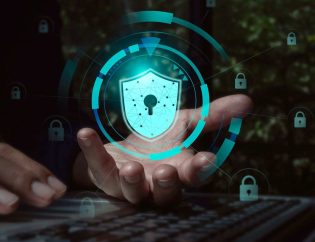
Introduction
In the modern digital world, organizations face numerous cyber threats every day. Antivirus endpoint security plays a key role in safeguarding businesses from these threats. This type of security ensures that devices like laptops, smartphones and desktops are protected from malware, ransomware and other malicious activities. This article will dive into the best practices for implementing antivirus endpoint security and provide recommendations to help organizations enhance their cybersecurity measures.
Protect your business with antivirus endpoint security. Safeguard devices, detect malware, and prevent threats with the latest solutions. Keep your data and operations safe from cyber attacks. #CyberSecurity
— Hyper Secure (@HyperSecure) November 20, 2024
What is Antivirus Endpoint Security?
Antivirus endpoint security is a type of software that protects devices connected to a business’s network from potential threats. These devices include personal computers, laptops, smartphones and tablets. Antivirus software continuously scans and removes malicious software (malware), ensuring that sensitive data remains safe. It plays a vital role in the defense mechanism of an organization by blocking unauthorized access to its devices and network.
Key Features of Antivirus Endpoint Security
Antivirus endpoint security comes with a variety of features that work together to provide comprehensive protection. These features include:
Real-time threat detection:
The software scans the device continuously to identify any suspicious activity, blocking threats before they can damage your system.
Malware removal:
It identifies and removes viruses, worms, spyware and other malicious software, preventing them from compromising your devices.
Behavioral analysis:
This feature uses machine learning and AI to detect unusual behaviors that could indicate a security breach, even from new or unknown threats.
Automatic updates:
It ensures the software remains up to date with the latest threat intelligence, helping your system stay ahead of emerging risks.
These features work in tandem to protect against a wide range of security threats.
Best Practices for Antivirus Endpoint Security Implementation
To ensure that antivirus endpoint security is effective, organizations should follow several best practices:
Regular software updates:
Ensure antivirus software is kept up to date to protect against the latest malware threats.
Scheduled scans:
Set up automatic scans to check for threats regularly, ensuring vulnerabilities are detected early.
Use multi-layered security:
Combine antivirus software with other security tools, such as firewalls, intrusion detection systems and encryption.
Educate employees:
Train employees to recognize phishing attempts and safe browsing habits, reducing the likelihood of user errors compromising endpoint security.
These practices will enhance the effectiveness of your antivirus endpoint security system and help prevent potential breaches.
Antivirus vs. Endpoint Protection: What’s the Difference?
While antivirus endpoint security focuses on detecting and removing malware from devices, endpoint protection refers to a broader security approach. Endpoint protection includes antivirus tools but also adds extra layers, such as endpoint detection and response (EDR), firewalls and more.
Here’s a brief comparison:
Antivirus Endpoint Security:
Primarily blocks and removes known malware from devices. It focuses on prevention but lacks the ability to detect sophisticated or unknown threats.
Endpoint Protection:
Includes antivirus security but offers additional features like real-time monitoring, advanced threat detection and response mechanisms to prevent and mitigate both known and unknown threats.
While antivirus protection is essential, businesses may need endpoint protection for more comprehensive coverage.
How Antivirus Endpoint Security Helps Businesses
For businesses, antivirus endpoint security is crucial for maintaining a secure IT environment. Here’s how it helps:
Prevents data breaches:
By blocking malware and cyber threats, antivirus software protects sensitive business information from being stolen or leaked.
Minimizes downtime:
Malware infections can cause system slowdowns or shutdowns. Antivirus software prevents these disruptions, ensuring that business operations run smoothly.
Protects remote workers:
As more employees work remotely, their devices are vulnerable to cyberattacks. Antivirus endpoint security ensures these devices remain protected, even when employees are outside the company network.
Maintains reputation:
Data breaches can severely damage a business’s reputation. With effective antivirus security, companies can reduce the risk of data loss and protect their brand image.
The benefits of endpoint antivirus software are immense, as it provides a solid foundation for protecting business devices and data.
The Role of Antivirus Endpoint Security in Compliance
Antivirus endpoint security also plays a critical role in maintaining security compliance with industry regulations. Many organizations are required to meet specific cybersecurity standards to protect sensitive information and avoid legal issues. For example, businesses handling financial or healthcare data must comply with regulations like:
By implementing antivirus endpoint security, businesses can safeguard confidential information, help meet regulatory standards and avoid potential fines. Antivirus tools are also often designed with compliance in mind, providing features that help organizations monitor and document their security measures.
How to Choose the Right Antivirus Endpoint Security Solution
Selecting the right endpoint antivirus software is critical for ensuring robust protection. When choosing antivirus security, consider the following factors:
Compatibility:
Ensure the solution works with your current systems, whether on-premise or in the cloud.
Scalability:
Your security solution should grow with your business, protecting an increasing number of devices as your organization expands.
Real-time protection:
Look for antivirus software that offers continuous protection against evolving cyber threats.
User-friendly interface:
Choose a solution that’s easy to use and manage, with intuitive dashboards for monitoring and reporting.
These factors will help you choose a solution that meets your organization’s needs while providing comprehensive protection.
Conclusion
In conclusion, antivirus endpoint security plays a crucial role in modern cybersecurity strategies. It protects devices from malware, ransomware and other threats, ensuring uninterrupted business operations. By following best practices and implementing a strong antivirus solution, businesses can secure their data and maintain compliance with industry regulations. As an Endpoint Security Company, Hyper Secure helps businesses achieve these objectives with advanced protection measures.
Hyper Secure offers advanced solutions to help organizations enhance their endpoint device security and mitigate cyber risks. Our endpoint protection services provide real-time threat detection and continuous monitoring to ensure your business remains secure.
FAQs
What is antivirus endpoint security?
Antivirus endpoint security is software that protects devices from malware, viruses and other cyber threats to ensure business data remains secure.
How does antivirus endpoint security work?
It scans devices for malicious files, detects threats and removes them before they can damage the system, preventing data breaches.
Why is antivirus endpoint security important for business?
It prevents cyberattacks, ensuring the safety of sensitive business data and helping maintain business continuity by avoiding system disruptions.
What features should I look for in endpoint antivirus software?
Look for real-time protection, malware removal, device management and cloud-based updates for comprehensive threat protection.
Can antivirus endpoint security prevent all cyber threats?
While antivirus software significantly reduces risk, combining it with other security measures, like firewalls and encryption, is recommended for comprehensive protection.








